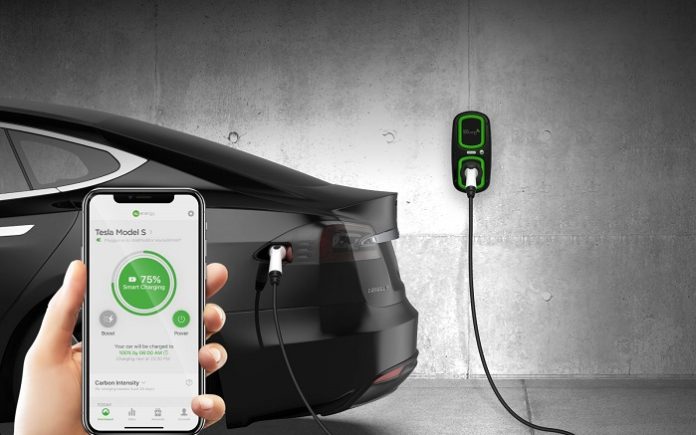Sustainability helps drive the electric vehicle (EV) market forward; however, there are aspects of EV transportation that still have room to grow more sustainable. In comes smart charging: Through open network communication between vehicles, charging stations and energy suppliers, the EV industry can continue to reduce its impact on energy resources. Read on to learn more about smart charging and its benefits to both drivers and station owners.
What Is Smart EV Charging?
The term smart charging for EVs is multifaceted, but all aspects of the definition boil down to energy consumption. The ultimate goal of smart charging is to optimize energy usage while charging electric vehicles. To achieve this goal, smart charging relies on digital communication with the EV itself, the charging station and the energy supplier; the exchange of data is what earns this type of charging its “smart” title.
Why Go Smart?
To fully acknowledge the importance of smart charging for EVs, it helps to compare it to “dumb charging.” Consider plugging in your cell phone: While it can communicate to you its charge level, the phone is not communicating with the power grid and the charging implement to adapt its power usage. It draws the same amount of power (whatever the charger is capable of) until the phone is charged.
Now consider EVs: While they are a more sustainable mode of transportation while operating on the road, the industry goal is to maximize EV sustainability. EVs contain large batteries that require frequent charging for frequent use. If station owners and EV drivers relied exclusively on “dumb charging,” there would be a significant toll on the power grid at peak times, as well as a decrease in cost effectiveness. Smart charging optimizes energy consumption to help solve the problems brought on by power grid congestion and power usage peaks. This benefits everyone from EV drivers to station owners by giving agency over how and when electricity is used.
Open Charge Point Protocol (OCPP)
Smart charging can only exist in its current form thanks to a crucial agreement: Open Charge Point Protocol (OCPP). Though OCPP is the industry standard for charging stations, not all charging networks are created equal. Because vehicles, charging stations and energy suppliers need to exchange information in order to intelligently charge, they must have the ability to communicate with each other. OCPP not only allows drivers the freedom of interoperability, but these open networks empower and expedite smart charging solutions.
Smart Charging for EV Drivers
EV drivers often seek smart charging due to the control it offers. It removes the burden of choosing when to physically plug in the vehicle (as in “dumb charging”) and allows the user to define the time and amount of charge they want via their network. Labeled User Managed Charging (UMC), this type of smart charging only requires information to flow one direction: from the user to the charging station to the energy supplier.
Benefits for Drivers
One of the main benefits of smart charging is that it is simply more economical. The ability to control the charge time and amount leads to control over the total cost of operating an EV. Additionally, smart charging simplifies the charging experience for EV drivers, allowing drivers to set it and forget it. Finally, drivers can feel secure in their decision to drive a sustainable vehicle due to smart charging’s adaptive power consumption.
Smart Charging for EV Charging Station Owners
While EV drivers undoubtedly benefit from smart charging, charging station owners can use it to maximize the potential of their networks. The brilliance in smart charging for station owners is that, due to OCPP, it is always adaptable and updatable. This type of smart charging is called Supplier Managed Charging (SMC), which means that the exchange of information must flow in both directions (between the vehicle, the station and the energy supplier). Basically, if the grid is facing increased burden, or there is a surplus of drivers seeking a charge, the supplier needs to be able to adapt on the fly.
Benefits for Charging Station Owners
Again, many of the benefits of smart charging for station owners boils down to cost. However, due to the two-way nature of SMC, station owners can both increase revenue and decrease upkeep cost. Because EV Connect charging stations easily integrate with hardware manufacturers, charging station owners can scale as needed with the option to change hardware in the future. Owners can also quickly and easily distribute power to different areas, smooth energy peaks and keep up with charge demand. Not only that — the networks can be programmed to do the legwork for owners. The term “smart charging” barely scratches the surface of how complex and beneficial this open network communication is.









